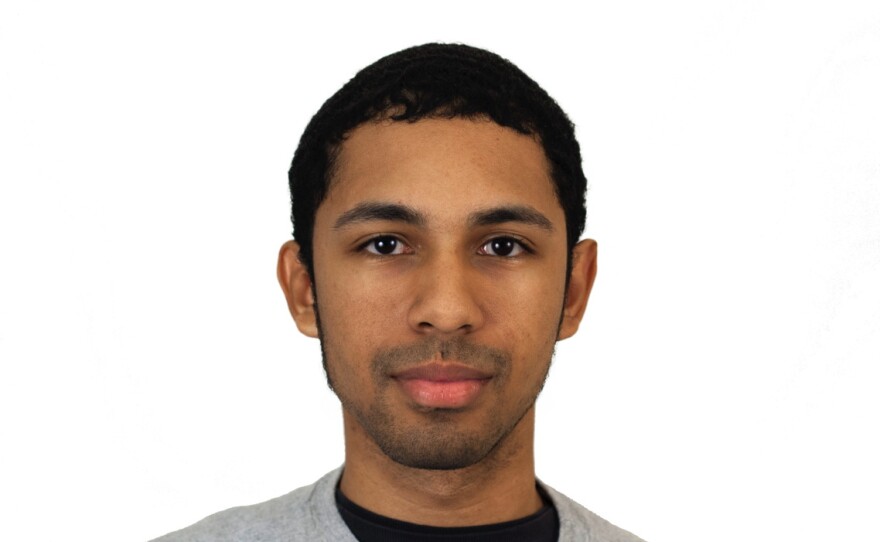First impressions can have lasting consequences.
New research is delving into how we evaluate a stranger’s face, and pass judgments based on fleeting impressions.
A new, worldwide collaborative started at Ashland University is helping explain that process, and tackle other questions.
In this week’s Exploradio, WKSU’s Jeff St.Clair looks at how the Psychological Science Accelerator is putting a new face on how science is done.
For Ashland University psychology professor Chris Chartier, it all started during a really excellent bike ride.
“It was right after the total eclipse of 2017,” he says, "and this phrase popped into my head, ‘a CERN for psychological science."
He had always been impressed by the ability of science to precisely predict things like eclipses, which prompted the idea to create a collaborative research consortium, along the lines of the CERN particle collider, for his field.

Chartier finished his ride,“got home, and wrote a blog post by that name.”
The response, he says, was immediate.
“Within a few days, hundreds of researchers from dozens of countries were willing to join the effort.”
They soon had a name, with a nod to CERN, the Psychological Science Accelerator, or PSA.
The replicability crisis
Chartier says the PSA is a response to a growing crisis in psychological research where even big findings are difficult to verify.
“I’d say best estimates of how replicable our field is in terms of published findings is around 50 percent. So we’re talking a coin flip.”
He says part of the problem is that researchers generally rely on subjects that are WEIRD, or "Western Educated Industrialized Rich and Democratic societies.
"The issue," he says, "is that we draw global conclusions about human psychology from an extremely WEIRD subset of the global population.”
The solution, he says, is to include as much of humanity as possible in research studies.
The PSA collaborative he launched now has 760 researchers from 72 counties.
Their inaugural project looked to replicate, on a global scale, studies in the U.S. on how people form first impressions.
The science of first impressions
People look for a lot of things when they see a stranger's face.
Researchers have identified more than a dozen snap judgments we make on first glance, they include attractiveness, caringness, emotional stability, intelligence, dominance, and especially trustworthiness.

It’s these last two traits, trustworthiness and dominance that form the lion’s share of our initial opinions about strangers, according to studies at Princeton and Dartmouth.
Researchers in the PSA wanted to see if those findings hold true across cultures.
Jessica Flake of McGill University in Montreal is in charge of data management for the PSA.
She sums up the premise they’re testing in this way. “The first dimension is like your intentions, ‘do you want to harm me?’”
That's labeled ‘trustworthiness.’
“The second one is ability, ‘do you have the ability to harm me?’”
That's called dominance.
The PSA asked 11,500 people around the world to evaluate faces to see if those two criteria, trustworthiness and dominance, actually made-up first impressions.
Flake says they did, sort of.
“It’s more like, you look at a face and depending on the face, and depending on the context, and depending on the situation, your brain reduces that information in a different way.”
“This study has revealed that there’s more variation than we as a field had originally thought,” according to McGill's Eric Hehman.

He says what were thought to be the universal judgments of trustworthiness and dominance are only part of the picture.
“Even from situation to situation," says Hehman, "exactly how people are forming impressions will vary.”
He says, more than the features of a face, our stereotypes, biases, and experiences largely determine first impressions.
A brain for faces
That makes sense to Kent State University psychologist Karin Coifman, who uses the human face in her work on emotion.
“We appraise facial features and we ascribe them value and that value will be culturally determined,” says Coifman.

Large parts of our brain are dedicated to interpreting other people’s expressions. There are even special neurons that respond only to faces.
“We are really programmed to tune into faces in a way that we don’t to almost anything else in the environment,” she says.
The implications are profound.
Studies have shown that attractive politicians are more likely to get elected, regardless of competency; people with certain facial characteristics are more likely to receive the death penalty.
And Jessica Flake says those are even more reasons why we need to ensure science is up to the task of understanding human behavior on a broad scale.
“I think we’re just pushing back on a lot of the things that drive how science works today,” says Flake.
The Psychological Science Accelerator now has five more research studies underway.
The PSA's initial study showed that around the world trustworthiness, along with beauty, is indeed in the eye of the beholder.
















